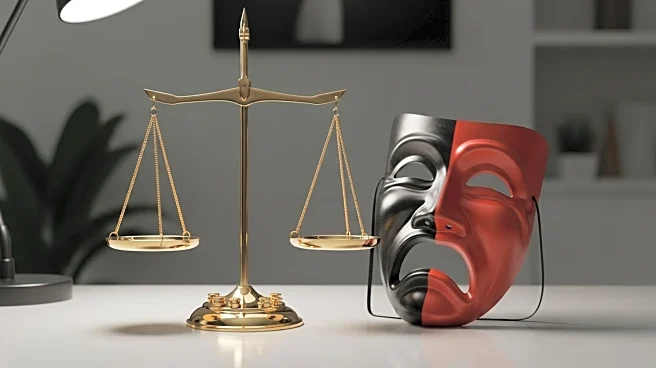What's Happening?
Frank Ramos, a partner at Goldberg Segalla in Miami, emphasizes the benefits of improv classes for lawyers. Ramos, who practices commercial litigation and personal injury law, shares his experience of taking improv classes to overcome stage fright and improve public speaking skills. He highlights how improv teaches lawyers to think on their feet, react in real-time, and handle unexpected situations effectively. Ramos notes that improv encourages lawyers to work with what they have, embrace unexpected developments, and turn challenges into opportunities. He advocates for lawyers to step out of their comfort zones and suggests that improv can help overcome impostor syndrome.
Why It's Important?
The integration of improv skills into legal practice can significantly enhance a lawyer's ability to communicate and adapt in dynamic situations. By learning to think quickly and respond to unforeseen circumstances, lawyers can improve their courtroom performance and client interactions. This approach can lead to more effective case management and better outcomes for clients. Additionally, overcoming stage fright and impostor syndrome can boost a lawyer's confidence, making them more persuasive and assertive in their professional roles. The emphasis on adaptability and creativity in legal practice can also foster innovation within the industry.
What's Next?
Lawyers interested in improving their communication and adaptability skills may consider enrolling in improv classes offered in major cities. These classes are typically available during evenings or weekends, providing a safe environment for participants to explore their creativity and enhance their professional skills. As more lawyers embrace this unconventional training method, it could lead to broader acceptance and integration of improv techniques in legal education and practice.
Beyond the Headlines
The adoption of improv techniques in legal practice may also influence the cultural dynamics within law firms. Encouraging creativity and adaptability can lead to a more collaborative and open-minded work environment. This shift could challenge traditional perceptions of legal practice, promoting a more holistic approach to professional development. Furthermore, the skills gained from improv may extend beyond the courtroom, benefiting lawyers in negotiations, client relations, and team management.









